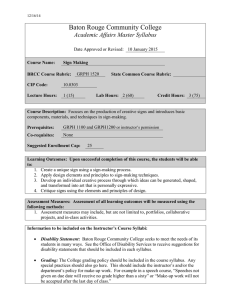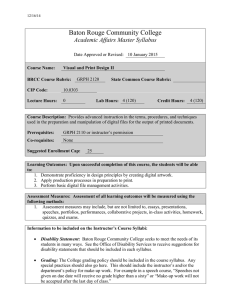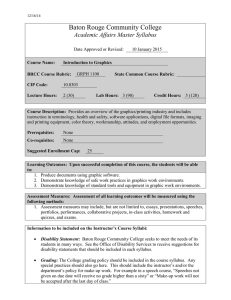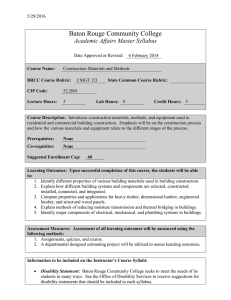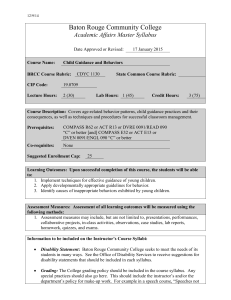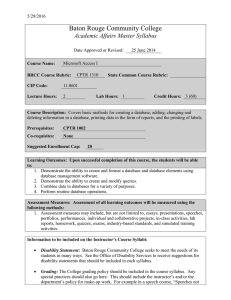Baton Rouge Community College Academic Affairs Master Syllabus
advertisement
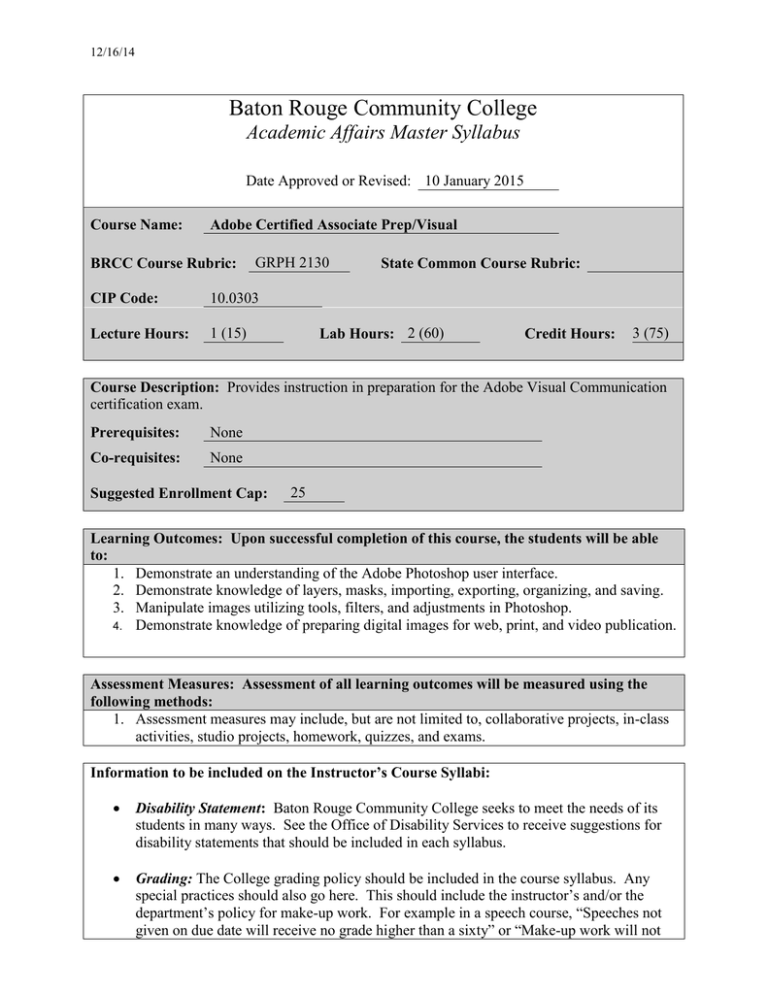
12/16/14 Baton Rouge Community College Academic Affairs Master Syllabus Date Approved or Revised: 10 January 2015 Course Name: Adobe Certified Associate Prep/Visual BRCC Course Rubric: GRPH 2130 CIP Code: 10.0303 Lecture Hours: 1 (15) State Common Course Rubric: Lab Hours: 2 (60) Credit Hours: 3 (75) Course Description: Provides instruction in preparation for the Adobe Visual Communication certification exam. Prerequisites: None Co-requisites: None Suggested Enrollment Cap: 25 Learning Outcomes: Upon successful completion of this course, the students will be able to: 1. Demonstrate an understanding of the Adobe Photoshop user interface. 2. Demonstrate knowledge of layers, masks, importing, exporting, organizing, and saving. 3. Manipulate images utilizing tools, filters, and adjustments in Photoshop. 4. Demonstrate knowledge of preparing digital images for web, print, and video publication. Assessment Measures: Assessment of all learning outcomes will be measured using the following methods: 1. Assessment measures may include, but are not limited to, collaborative projects, in-class activities, studio projects, homework, quizzes, and exams. Information to be included on the Instructor’s Course Syllabi: Disability Statement: Baton Rouge Community College seeks to meet the needs of its students in many ways. See the Office of Disability Services to receive suggestions for disability statements that should be included in each syllabus. Grading: The College grading policy should be included in the course syllabus. Any special practices should also go here. This should include the instructor’s and/or the department’s policy for make-up work. For example in a speech course, “Speeches not given on due date will receive no grade higher than a sixty” or “Make-up work will not be accepted after the last day of class.” Attendance Policy: Include the overall attendance policy of the college. Instructors may want to add additional information in individual syllabi to meet the needs of their courses. General Policies: Instructors’ policy on the use of things such as beepers and cell phones and/or hand held programmable calculators should be covered in this section. Cheating and Plagiarism: This must be included in all syllabi and should include the penalties for incidents in a given class. Students should have a clear idea of what constitutes cheating in a given course. Safety Concerns: In some programs this may be a major issue. For example, “No student will be allowed in the safety lab without safety glasses.” General statements such as, “Items that may be harmful to one’s self or others should not be brought to class.” Library/ Learning Resources: Since the development of the total person is part of our mission, assignments in the library and/or the Learning Resources Center should be included to assist students in enhancing skills and in using resources. Students should be encouraged to use the library for reading enjoyment as part of lifelong learning. Expanded Course Outline: 1. Project requirements 2. Typography, design principles, and image composition 3. Adobe Photoshop user interface 4. Layers 5. Masks 6. Importing 7. Exporting 8. Organizing 9. Saving 10. Tools 11. Filters 12. Adjustments 13. Digital images for web, print, and video publication 2


